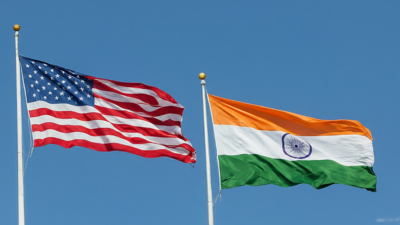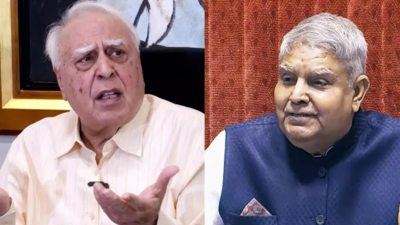US presses India for full e-commerce access to Amazon, Walmart amid trade deal talks: Report

The US administration is seeking to negotiate with India to provide full market access to online retailers like Amazon and Walmart in its £125 billion ecommerce sector, as part of trade discussions conducted under potential tariff increase threats, according to reports from Financial Times.
US officials, industry executives and lobbyists reportedly indicated plans to urge Prime Minister Modi’s administration for equal opportunities in ecommerce during comprehensive US-India trade agreement discussions, encompassing various sectors from food to automobiles.
This comes after US vice-president JD Vance’s meeting with PM Modi in New Delhi on Monday resulted in both parties acknowledging “significant progress in the negotiations for a mutually beneficial” trade agreement, as stated by Indian government officials. They also recognised ongoing collaborative efforts in energy, defence and strategic technologies.
India’s exports to the US face a potential 26 per cent tariff, though President Trump has temporarily suspended this for 90 days to facilitate negotiations.
Amazon’s CEO Jeff Bezos participated in Trump’s January inauguration, whilst Walmart’s Doug McMillon met privately with Trump at Mar-a-Lago. McMillon later joined other retail executives at the White House on Monday for tariff discussions.
An unnamed industry executive revealed that McMillon addressed India’s restrictions on foreign ecommerce enterprises at Mar-a-Lago. Walmart maintains ownership of Indian online retailer Flipkart.
The US initiative to expand retail access in India positions Bezos and McMillon against Asia’s wealthiest individual, Mukesh Ambani, whose Reliance group dominates Indian retail and operates multiple ecommerce platforms.
Current Indian regulations restrict US ecommerce firms to operating solely as online marketplaces for third-party sellers. In contrast, domestic competitors can manufacture, own and sell products through their platforms. Washington classifies this alongside foreign direct investment limitations in retail as a “non-tariff barrier”.
“Since 2006, the US has been trying to open up India’s domestic market, and has been stymied successfully ever since,” sted Arvind Singhal, chair of retail consulting firm Technopak Advisors.
Beyond inventory restrictions, US retailers have encountered repeated Bureau of Indian Standards product inspections, according to industry executives speaking anonymously due to ongoing trade negotiations.
Two industry executives confirmed to the Financial Times the Trump administration’s close coordination with US ecommerce platforms during negotiations.
Meanwhile, Trump has labelled India the “tariff king” in the past due to its protective policies. As India’s largest trading partner, both nations aim to increase bilateral trade in goods and services to $500 billion, exceeding twice the current volume.





